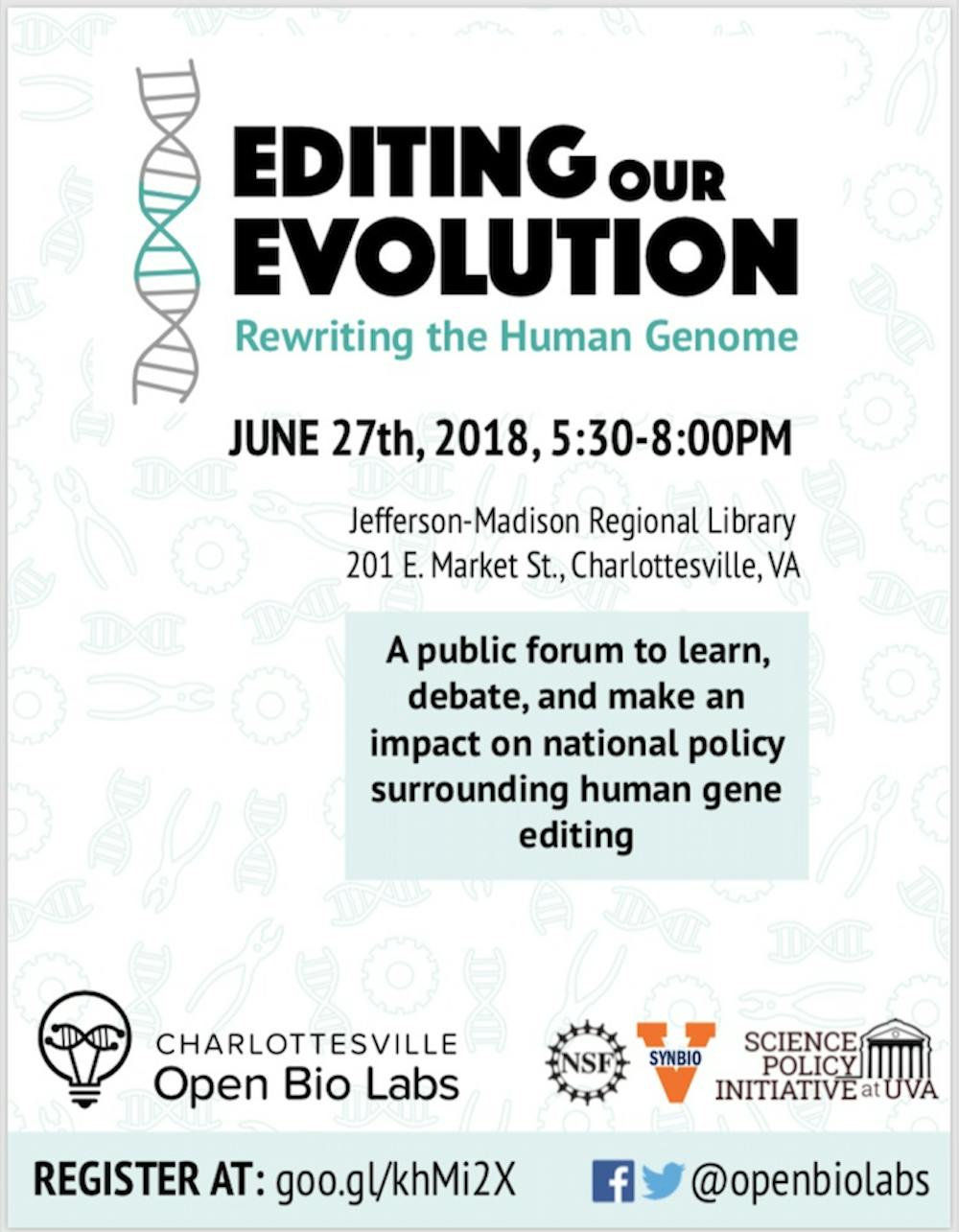Charlottesville’s citizen-based science initiative Open Bio Labs will host a public forum Wednesday to discuss the implications of human genetic editing. Titled “Editing our Evolution: Rewriting the Human Genome,” the event aims to bring together people of diverse professions and interests and address the growing gap between scientists and the public.
The forum is part of a national effort lead by the National Science Foundation to understand the public sentiment towards the consequences of human genetic engineering. According to Shaun Moshasha, founder of Open Bio Labs, Open Bio Labs was one of 24 groups around the nation selected to hold the NSF-sponsored discussion.
The event will begin with a brief introduction informing participants of the broad societal implications of human genetic engineering and will feature Mazhar Adli, assistant professor of Biochemistry and Molecular Genetics at the Medical School.
Moshasha will then open the floor to discussion centered around three questions. He will lead discussion along by asking participants to imagine themselves in different scenarios. Following the large-group discussion, participants will split into groups of six to eight members and talk about the questions in greater depth at tables.
The first question will ask participants to differentiate between therapy for disease and enhancements meant to augment genetic characteristics. Thereafter, the second question will focus on access to genetic engineering technology, and the last will prompt participants to consider the outcomes of editing one’s current characteristics versus editing one’s germline to affect change in future generations.
These questions were developed by the NSF over the span of a year and are designed to promote dialogue. To prepare for and organize the event, Moshasha attended a training session in Boston in April and worked with graduate student volunteers, the Science Policy Initiative and the Synthetic Biology Institute at the University throughout May.
The extent of preparation for the forum may be a reflection of the importance and urgency of discussing the consequences of human genetic engineering.
“Before [human gene editing] was kind of fantasy fiction, and now it’s real,” Moshasha said. “So it’s coming up very fast and we as a society have to understand how to deal with these technological advances that affect our society.”
According to Moshasha the gap between scientists and the public can be filled with either fear or knowledge — fear may be debilitating whereas widespread knowledge on the topic of human genetic engineering may guide more informed decisions.
The Science Policy Initiative — a student-run organization — encourages scientists and engineers to be informed and involved in science policy. Sean Chadwick, a graduate student and SPI communications officer, said in an email that the SPI believes the “Editing Our Evolution” forum will create an inclusive and evidence-based dialogue surrounding genetic engineering in humans.
The NSF initiative comes in the wake of numerous technological breakthroughs in the field of biology. For example, the CRISPR/Cas9 system enables scientists to add or remove specific bits of DNA with unprecedented precision. Moreover, an array of adult mammals — including the famous domestic sheep named Dolly — have been cloned from somatic or body cells.
Moshasha hopes to engage as many people as possible to comprehend the power and restrictions of these advancements.
“I’m looking for the most diverse public available — the scientists, the administrators, the environmentalists, the doctors, patients, people in the arts — because the whole idea is to come together as a community and determine what we feel comfortable with,” Moshasha said.
Readers interested in participating in the forum can register for free online.
The event takes place Wednesday from 5 p.m. to 8:30 p.m. at the Jefferson-Madison Regional Library on East Market Street.







